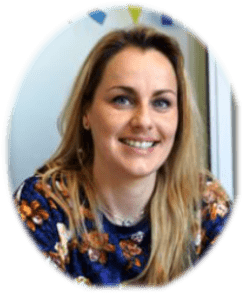 Our May Immunologist of the month is Virginie Rozot from the University of Cape Town. Virginie conducted her PhD Research at the University of Lausanne, which she completed in 2013. She then began a Post-Doctoral Research fellowship at the South African Tuberculosis Vaccine Initiative, University of Cape Town. Her research focuses on understanding Tuberculosis-specific immune responses associated with different stages of infection and disease progression, as well as novel TB vaccine responses.
Our May Immunologist of the month is Virginie Rozot from the University of Cape Town. Virginie conducted her PhD Research at the University of Lausanne, which she completed in 2013. She then began a Post-Doctoral Research fellowship at the South African Tuberculosis Vaccine Initiative, University of Cape Town. Her research focuses on understanding Tuberculosis-specific immune responses associated with different stages of infection and disease progression, as well as novel TB vaccine responses.
The immunopaedia team was very fortunate to interview Virginie, and learn more about her career trajectory.
Name: Virginie Rozot
Position: Research Officer at the South African Tuberculosis Vaccine Initiative, University of Cape Town.
Why did you become an immunologist ? I fell in love with immunology when I was 20, while I was doing a technical diploma. My best friend at the time had a deeper understanding of immunology than I did, and we spent afternoons working together on immunology courses. She would assist me with the coursework by explaining the “nitty gritty” of innate and adaptive immune systems, which I discovered to be incredibly complex and powerful at the same time. I did not know I wanted to be an immunologist for a long time, after I finished engineering school, I pursued a PhD in the field of infectious diseases and human immunology.
If you want to understand the complex host-pathogen interaction you need to dive into immunology. TB is one of the diseases with extremely complex host-pathogen interactions, so complex that even after co-existing for thousands of years we still have knowledge gaps, and I am “trapped” [by my fascination] in the field of tuberculosis. I am fascinated by the power of our body to develop complex systems to maintain health and by the interplay of immune components in health and disease.
What is your research focus? My research focuses on the study of the host-pathogen relationship during tuberculosis disease as well as the subsequent immunopathology, in order to transfer immunological findings into clinical practice.
If we understand the complex interplay between the different immune components in the context of the disease, then we can identify markers of progression to disease, that could be potential correlates of risk. Understanding the complex system is also beneficial for the development of more potent vaccines and diagnostic tools which are unfortunately still missing in the field.
How has your research contributed/impacted the field of TB immunology ? During my PhD we developed a flow cytometry TB diagnostic test that helps clinicians to diagnose difficult TB cases, this test has been in use at the Lausanne hospital (Switzerland) for many years.
I have worked on the first prevention of Mtb infection vaccine clinical trial, which showed moderate efficacy, opening the doors for finding a potential of correlates of protection.
I have also developed the first mass cytometry platform on the African continent to address different hypothesis regarding progression to tuberculosis disease. This platforms also allows researchers from different fields to use the state of the art technology for their own projects.
Why do we need a new TB vaccine, and how has your research contributed to the field of TB vaccinology ? We need to erase TB from the world map. Tuberculosis is an ancient disease that is caused by an infection with the bacteria, Mycobacterium tuberculosis. We need to find a way to protect people from becoming sick, just as we have done for many other infectious diseases such as smallpox. Some people do not get sick, so it must be possible to induce this type of protective immunity. So far, BCG vaccination has been useful in reducing the disease burden, particularly in children and for extra-pulmonary forms, but this does not fix the problem completely. We need a new TB vaccine or new schemes of vaccination that would protect people from all ages against the disease in all its forms. I hope that results from my current study will identify correlates of risk, that can be used to develop better vaccine strategies.
Advice for grad students and early career scientists ? I believe that being a scientist is not only a job and needs one to be very passionate about it. As many things in life, it can be a really frustrating and time consuming path, but for me the challenges are worth it [ a million times over]. When I see new data from my experiments, I get very excited that it “completely erases” the struggle I went through to get there, this gives me the motivation to keep going to achieve my objective. I would advise all people wishing to go into this direction to follow their gut feeling, passions and push through. Patience and stubbornness/perseverance are some of the skills you need to have and improve when you do science, nothing arrives easily and quickly!
Interview by Cheleka AM Mpande










